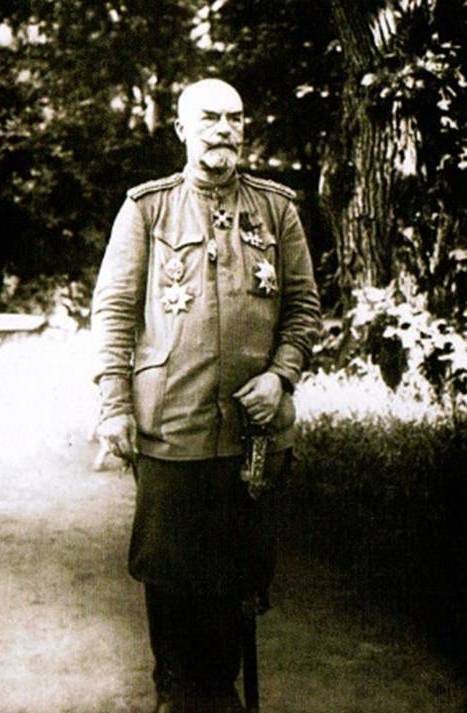
Ragoza, Alexander
 Alexander Ragoza (1858–1919) was a general of infantry and the Minister of War of the Ukrainian State. Born in Vitebsk, he graduated from Polotsk Military Gymnasium (1874), Mikhailovsky Artillery School, and Nikolaev Academy of the General Staff (1883). He entered the war as commander of the 19th Infantry Division (appointed in 1909). Later Ragoza was appointed commander of the 25th Army Corps (1914), promoted to general of infantry and lieutenant general (1914). The general won military glory in the battles of Vilkolaz and Uržendov (1915), defeating the 4th Austro-Hungarian army. After a heavy retreat of the Russian army from Poland to Belarus in the fall of 1915 and the creation of the Western Front with headquarters in Minsk, he was appointed commander of the 4th Army, which was part of the Front. Under his command, the 4th Army took up Baranovichi and consolidated the position for the next two years. At the same time he led the troops of the 2nd Army (1916). In 1916, the troops under the command of Ragoza participated in the operation at Lake Naroch. The result of the battle was the liberation of the city of Pastavy and the territory of Belarus, 20 thousand people were killed.
Alexander Ragoza (1858–1919) was a general of infantry and the Minister of War of the Ukrainian State. Born in Vitebsk, he graduated from Polotsk Military Gymnasium (1874), Mikhailovsky Artillery School, and Nikolaev Academy of the General Staff (1883). He entered the war as commander of the 19th Infantry Division (appointed in 1909). Later Ragoza was appointed commander of the 25th Army Corps (1914), promoted to general of infantry and lieutenant general (1914). The general won military glory in the battles of Vilkolaz and Uržendov (1915), defeating the 4th Austro-Hungarian army. After a heavy retreat of the Russian army from Poland to Belarus in the fall of 1915 and the creation of the Western Front with headquarters in Minsk, he was appointed commander of the 4th Army, which was part of the Front. Under his command, the 4th Army took up Baranovichi and consolidated the position for the next two years. At the same time he led the troops of the 2nd Army (1916). In 1916, the troops under the command of Ragoza participated in the operation at Lake Naroch. The result of the battle was the liberation of the city of Pastavy and the territory of Belarus, 20 thousand people were killed.
In June 1916, he led an offensive at Baranovichi, and in November 1916 the 4th Army under the command of Ragoza was transferred from Belarus to the Romanian Front, where in December they fought hard in battles on the River Rymnik. After the February revolution, Ragoza was one of the few senior military leaders of the Russian army who retained the post of commander. During March – April 1917, he temporarily commanded the Romanian Front and led the allied 1st and 2nd Romanian armies. In November 1917, he was mustered out by the Military Revolutionary Committee. He served as Minister of War in Skoropadsky’s government of the Ukrainian State (30.04–13.12.1918).
Honors:
Order of St. Vladimir 2nd degree with Swords (1915);
Order of the White Eagle with Swords (1915);
Order of St. George 4th degree (1915);
Order of St. Alexander Nevsky with Swords (1915).

